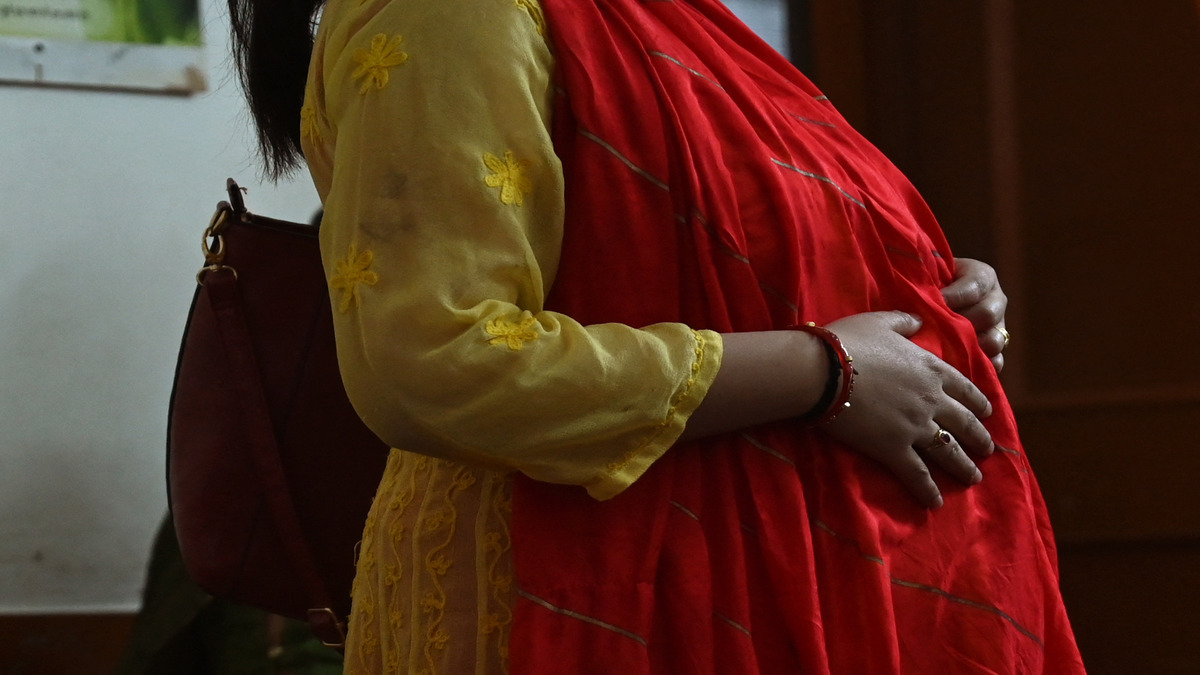The Centre has tweaked the surrogacy rules, bringing relief for married couples aspiring to become parents. The Ministry of Health and Family Welfare has amended the Surrogacy (Regulation) Rules, 2022 to allow the use of a donor gamete – ova or egg cells and sperm – if one of the “intending couple” has a medical condition.
The notification comes nearly a year after the Centre banned the use of donor gametes in surrogacy. So, what does the new notification say? What might have prompted the change? Let’s take a closer look.
Changes in surrogacy rules
The notification by the Centre states that both gametes need not come from the “intending couple” in case the husband or the wife have a medical condition.
“In case when the District Medical Board certifies that either husband or wife constituting the intending couple suffers from medical condition necessitating use of donor gamete, then surrogacy using donor gamete is allowed subject to the condition that the child to be born through surrogacy must have atleast one gamete from the intending couple,” the notification reads.
This means that donor gamete will be allowed in surrogacy if the District Medical Board warrants that the intending couple – husband or wife – suffer from a medical condition that compels the use of a donor gamete, as per Live Law.
Impact Shorts
More ShortsHowever, the Surrogacy (Regulation) Amendment Rules, 2024 will not be applicable for widowed or divorced women.
“Single woman (widow or divorcee) undergoing surrogacy must use self eggs and donor sperms to avail surrogacy procedure,” the notification read.
Indian laws bar single unmarried women from having children through surrogacy.
In March 2023, the Centre through Rule 7 under the ‘Consent of the Surrogate Mother and Agreement for Surrogacy’ of the Surrogacy (Regulation) Act had mandated that both the egg and the sperm should come from the intending couple.
Health experts laud changes to surrogacy rules
Health experts have welcomed the Centre’s decision to allow the use of donor gametes for surrogacy.
“While very few people need surrogacy — it is only meant for those who do not have a uterus, have a damaged uterus, or have a thin uterine lining — among those who do, the women are likely to be older, having tried other methods of getting pregnant before considering surrogacy. This is the reason some of them would need a donor egg; this is a very positive decision,” Dr Anjali Malpani, an IVF specialist from Mumbai, told Indian Express.
“Sperm donations are hardly needed these days, with techniques where the sperm can directly be taken from the testicles and injected directly into the egg,” she added.
Experts say the decision will bring respite to heterosexual married couples seeking surrogacy.
“Most couples opt for surrogacy after multiple miscarriages and failed IVFs. If the woman intending to fulfil her dream of parenthood has low ovarian reserve by the time she decides to opt for surrogacy, either due to age or a medical condition, getting a donor egg is the only option to have a child. I am glad govt has reconsidered its previous decision and allowed the same,” Dr Shivani Sachdev Gour, founder secretary of Delhi State chapter of Indian Society for Assisted Reproduction (USAR), told Times of India (TOI).
Why have the surrogacy rules been changed?
As per TOI, the Supreme Court played a major role in the modification of surrogacy rules by the Centre.
The apex court received multiple petitions from women across the country after it allowed one woman with Mayer-Rokitansky-Kuster-Hauser (MRKH) Syndrome – a rare congenital disorder that affects production of eggs and can cause infertility – to use donor eggs for surrogacy last year.
The Supreme Court has since allowed two dozen petitioners to use donor eggs, noted TOI.
Last October, the Delhi High Court observed that the Centre’s March notification banning donor gametes in surrogacy prima facie violates the “basic rights” of a married infertile couple to parenthood by “denying them access to legally and medically regulated procedures and services”, reported Indian Express.
In January, the Central government told the Supreme Court that it was reviewing the amendment to the surrogacy law brought last March.
Another provision of the surrogacy law that bars unmarried women from having children via surrogacy was also challenged in the apex court. However, the top court expressed reservation, stating that the institution of marriage needed to be “protected” in the country, unlike the West where it was normal to have children without getting married.
With inputs from agencies


)

)
)
)
)
)
)
)
)



